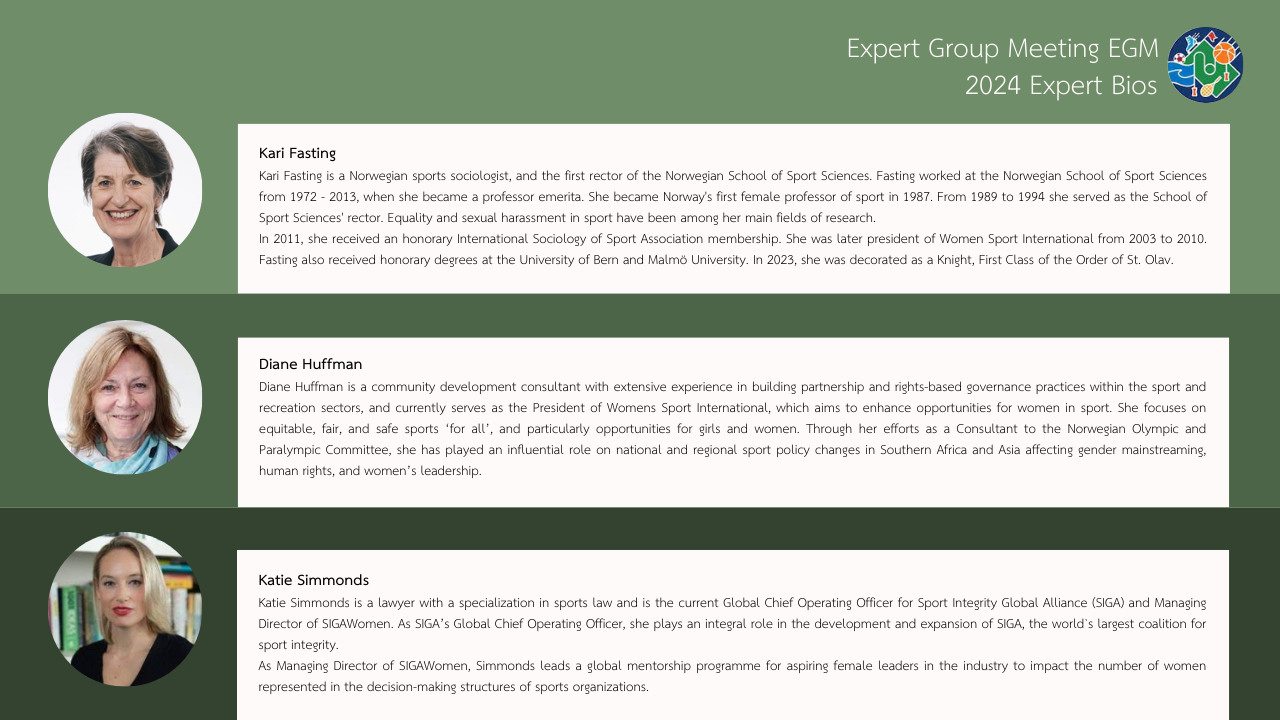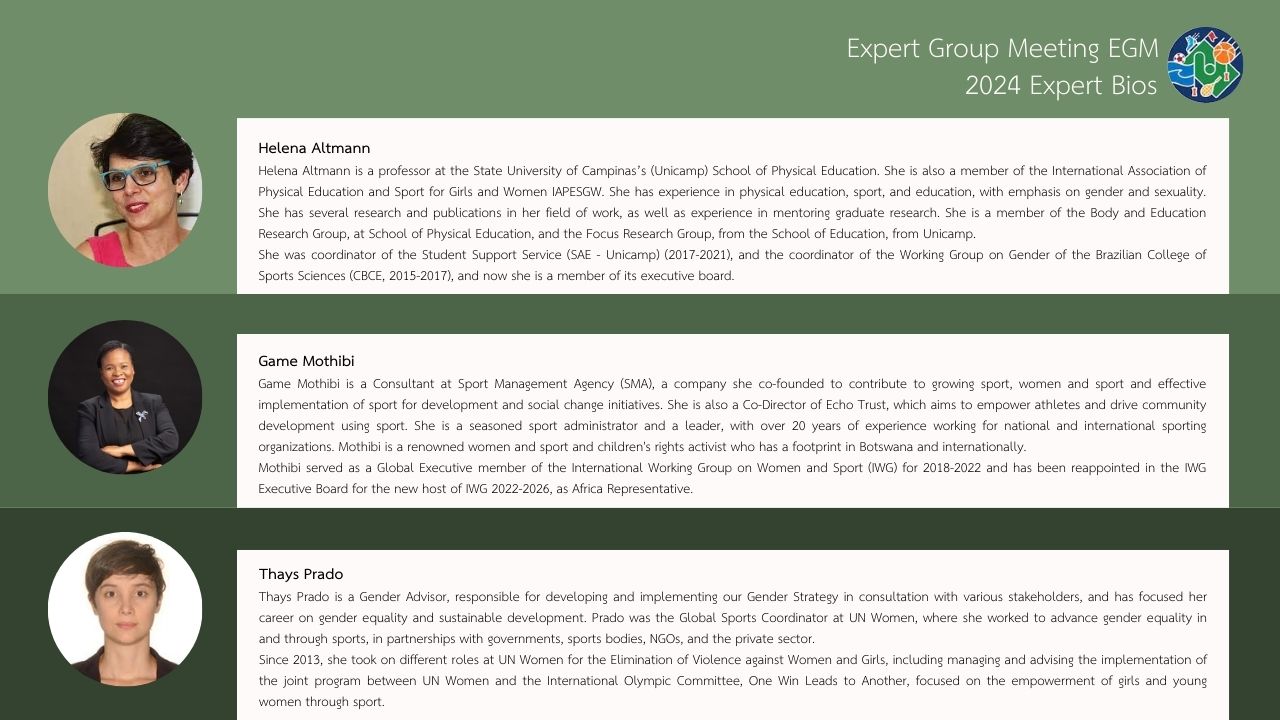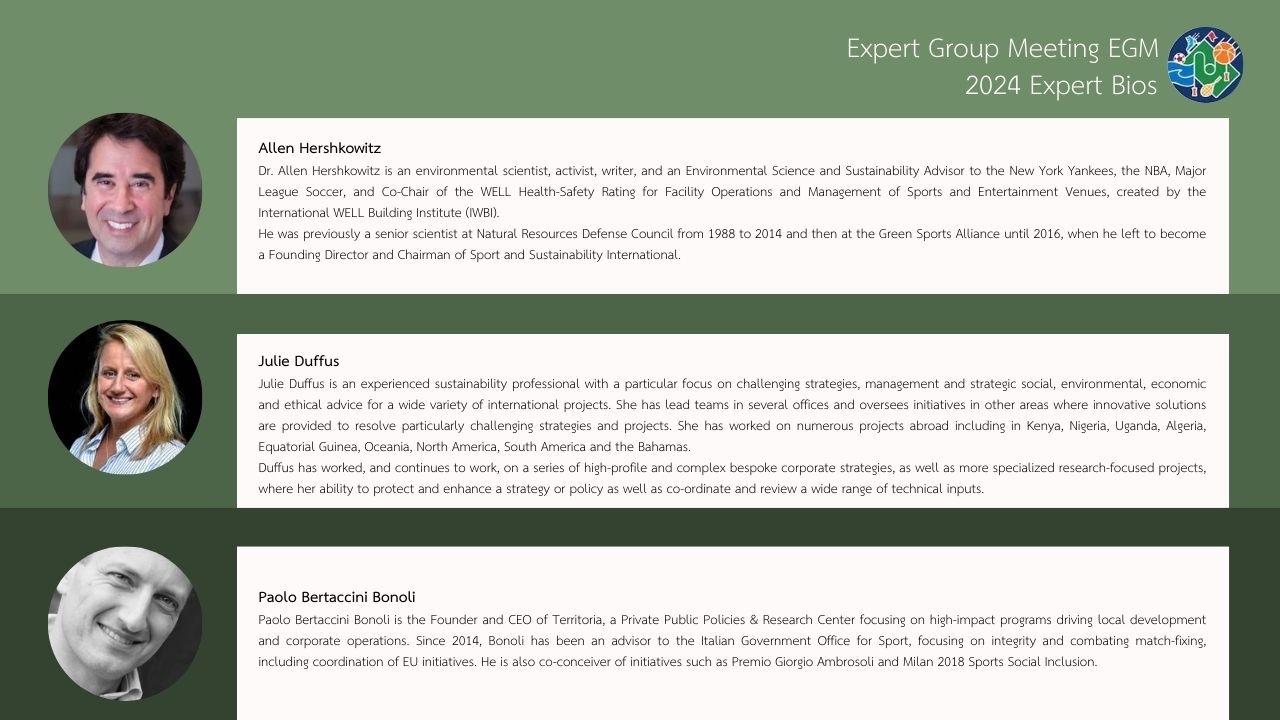This expert group meeting (EGM) was organized by the Division for Inclusive Social Development (DISD) of the UN Department of Economic and Social Affairs (DESA) to discuss the implementation of the 2030 Sustainable Development Goals through sport as a means of development and peace.
The meeting brought together inputs from Member States, UN entities, and other stakeholders, such as sporting teams, NGOs, and sport businesses at two levels to review the role of sport across all SDGs, taking into account the complex web of interactions among the Goals in a systemic manner, and considering the implications of taking action within each SDG along one dimension on another.
Date: 29 April - 3 May, 2024
Documents
EGM 2024 Concept Note EN
Objectives of the Meeting
- Convene the leading global experts, and organizations practitioners working on various aspects of the priority themes to gather the available knowledge and insights.
- Take stock of the latest research globally on the priority themes, with attention to key trends, data availability and needs, and best practices and gaps in policy responses.
- Provide information on an organization's achievements over the past two years.
- Develop informed, practical, and action-oriented recommendations to inform the drafting of the report of the Secretary-General on integrated approaches to sport and the Sustainable Development Goals, and influence and expand the global normative frameworks on sport for development and peace.
Guiding Themes and Questions
Overall Guiding Questions:
How is your area of expertise relevant to transforming lives through sport?
How have you and your organization contributed to the connection between sport and the SDGs over the past two years?
How does your specific area relate to the SDGs and what are your recommendations for the future?
Theme 1: Gender Equality
- How do we break down barriers to ensure meaningful access to sport for all? This includes barriers such as affordability, and harmful social norms.
- How is sport evolving to become more gender equitable (as evidenced by rapidly growing audiences and mass media coverage – for example)?
- What is needed to ensure quality physical education for girls and women – including policy change and investment ?
- How do we create a gender-transformative sports ecosystem, including ensuring women’s leadership in decision-making?
- How can the increased participation of women and girls in sport contribute to SDG achievement?
- We have heard for years that no one cares about women’s sport – so why invest in it? When in fact, we now see how with investment, people DO want to watch. How is this argument eroding, and what are the arguments in favor of greater investments in women’s and girls’ sports?
- What is being done to address gender-based violence in and through sport?
Theme 2: Integrity and Fair Play
- What are the current threats posed to the integrity of sport and how do they influence the outcome of events? For example, Artificial intelligence.
- How do we continue to combat Match Fixing which is a very real issue in the sports ecosystem?
- What are the barriers and support mechanisms available to sports people to offset results manipulation, doping, corruption, and unethical behaviors in sports?
- How do we create accountability measures to preserve individuals' human rights and responsibilities in sports?
- What are the ethics and values that promote community confidence in sports, including fair and honest performances and outcomes, unaffected by illegitimate enhancements or external interests?
Theme 3: Disability and Health
- What are the typical barriers for persons with a disability to participate in sports?
- Is there still a lack of awareness from people without disabilities on how to include individuals in sports? For example, the lack of opportunities for training and competition, and accessible facilities still cause physical barriers and limited resources.
- What role does the International Paralympic Committee play in ensuring sustainability in sport for persons with a disability? What are their plans and importantly their recommendations?
- How can we best incorporate sports for athletes with a disability into the mainstream of school and grassroots sports? What is needed?
Theme 4: Peaceful Societies
- What are the apparent positive outcomes of sports participation and the SDGs? How do we know this participation works?
- We understand that the IOC places education as a priority through sport but what is the value of education through sports in the development context?
- How do we increase funding for SDP programs?
- How do we effectively engage sport to increase community development in areas of conflict, poverty, and post-disaster?
- How do we plan and organize refugee sports programs?
- Human Rights in sport is a critical issue and needs to be front and center in United Nations policy structures. Discuss the future.
Theme 5: Sustainability and Consumption
- What is the role of the International Olympic Committee in leading sustainability and sports issues?
- Transportation-related emissions are a problem with major sports. How can we limit the significant carbon footprint?
- Sporting events require large amounts of energy for lighting, cooling, heating, and communications. How can we further limit or offset the sports dependency on increased carbon emissions, and air and water pollution?
- How do we eliminate waste generation in major sports and how can we recycle waste to further enhance waste elimination at grassroots levels?
Participation
- Each dialogue of the EGM will be attended by approximately 6-10 experts, representing a range of organizations, including academia. NGOs, networks and associations, sports teams, sports business organizations, practitioners, and civil society organizations leading practice on issues of relevance to the high-priority theme of Transforming Lives through Sport.
- Efforts will be made to select experts on a broad spectrum of issues of relevance to the theme. In selecting the experts, the criteria of geographical balance and diversity of representation will also be taken into account to ensure that a broad range of realities and perspectives are reflected.
- Experts will present and discuss their organizations and personal work at the meeting, with a focus on the formulation of policy recommendations for the UN System, Member States, Regional Commission, and other stakeholders.
- Organizations representing the United Nations System and other inter-governmental organizations with relevant mandates and expertise will also be invited to participate in the EGM as observers, and can pose questions to the experts.
Expert Biographies












 Welcome to the United Nations
Welcome to the United Nations